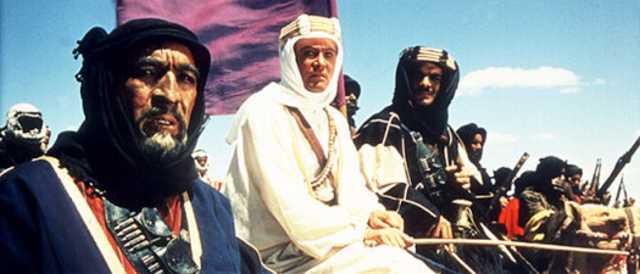When I think of Hollywood in the 1950s and ‘60s, one thing that quickly comes to mind are movies that were so long that they need intermissions: Lawrence of Arabia, Ben-Hur, Cleopatra, etc.
The last new release I saw in the theaters that had an intermission was Schindler’s List in 1993.
Yet, it feels like movies are once again approaching epic lengths.
Alfred Hitchcock once quipped that “the length of a film should be directly related to the endurance of the human bladder.”
In 2012 there have been quite a few movies that have been pushing my endurance (in fairness, I drink too much coffee):
Django Unchained: 2hr 46min
The Dark Knight Rises: 2hr 45min
The Hobbit: An Unexpected Journey: 2hr 50min
Zero Dark Thirty: 2hr 37min
Skyfall: 2hr 25min
My issue is not that that I lack the attention span for anything over two hours, but that Hitchcock is right — it’s not comfortable to sit in one spot for nearly three hours.
This doesn’t happen in other forms of entertainment. There are plenty of operas that run over 4 hours, but there are typically breaks every hour. Or consider how long baseball and football games can last, but you’re not stuck in your seat the whole time.
I was recently watching Lawrence of Arabia, and at 3hr 47min, it was simply too much for me to view in one day. Like a book, after a certain point I had my fill and put it down for the rest day even though there was still an hour and a half left in the movie.
There’s just a point where I become saturated.
There are two things that I believe are driving the recent trend of movies that are breaking two and half hours and approaching three hours. First, as directors become more successful, studios are not forcing them to have their films come in at a certain runtime. This results in indulgence and looser editing — the director simply doesn’t want to cut anything. I certainly believe that this is the case with Christopher Nolan, Quentin Tarantino and Peter Jackson. All of their most recent films could have easily been trimmed a bit to make the narratives a bit tighter.
The second issue is that there is a growing belief that adaptions of novels need to be as faithful as possible to the source material, to the point that single books are being turned into multiple movies (which I suppose was also an issue in the 1950s and ’60).
I really don’t understand this fetish with being faithful to books. They’re totally different mediums. Novels have a different narrative structure because there is no expectation that someone is going to read them in a short and specific amount of time. Writers can take their time with pacing and have a dozens of plot lines and characters that stretch the book to over 1,000 pages.
To give an example of a really good adaption, I would point to Game of Thrones. Despite each book being turned into a ten episode season (so far), the show has wisely cut lots of backstory, secondary characters, and tightened up lots of plotlines. Obviously some of this was done to control production costs, but if Peter Jackson was in charge and given all the money he wanted, each season would likely be 20 episodes and unbearable.
 |
| “Hear me out. This time I took one book and turned it into three movies; Next time, I’m going to adapt one of Tolkein’s third grade essays and turn it into five movies. You in?” |
A finally comment, is that I find the increasingly popular 2hr 45min runtime to be awkward for the narrative structure. It always feels like one of the acts is either way too long in proportion with the others, or too short. I almost feel like you’re better off going up to three hours or a bit more. Maybe it’s not a far comparison, but movies like The Godfather at 3hrs and Schindler’s List at 3hrs 20min actually flow much smoother and faster than the movies mentioned at the top of this post.
They’re really perfectly proportioned.










































































































